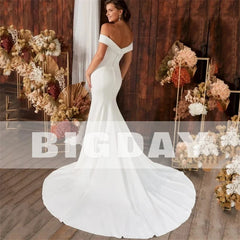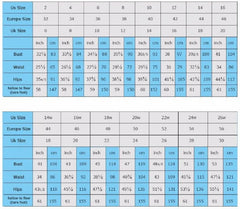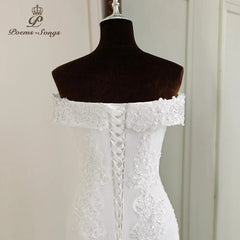Legal Requirements for Your Wedding: A Complete Guide
June 19, 2025
Melody Mburu
Planning your special day involves more than choosing flowers and venues. Understanding key documentation steps ensures your union meets all necessary standards. This guide simplifies the process for U.S. couples, whether planning a local celebration or destination event.
Rules differ across states and countries. Age limits, license costs, and waiting periods vary widely. For example, some regions require applications weeks before ceremonies. Others mandate specific officiant qualifications or witness numbers.
Timing matters most. Licenses often expire within months, so aligning dates with venue bookings is crucial. Many locations offer streamlined options like micro-ceremonies at city halls for smaller groups.
Post-ceremony steps matter too. Name changes and certificate registrations need attention. Our visual timeline helps track deadlines, while expert tips reduce stress during this exciting journey.
Key Takeaways:
-
Research location-specific rules early
-
Track license expiration dates
-
Confirm officiant credentials
Overview of Legal Wedding Requirements
Building a valid union starts with three core elements: proper documentation, authorized officiants, and witness participation. These pillars ensure your partnership gains full recognition under government regulations, whether you're exchanging vows at a beachfront resort or hometown chapel.
Understanding the Essential Steps
First, verify age and relationship status. Most jurisdictions require both partners to be at least 18 years old and not blood relatives. In some areas like British Columbia, couples must obtain their license within 90 days of the ceremony date.
Next, confirm officiant credentials. Only registered celebrants can perform binding ceremonies – this includes clergy members, judges, or certified civil officiants. Always request proof of their authorization before finalizing plans.
Importance of Compliance for Couples
Meeting these standards unlocks critical spousal benefits. Healthcare access, tax advantages, and inheritance rights all depend on proper certification. One common oversight involves expired licenses, which automatically invalidate ceremonies in many states.
Professional guidance helps avoid pitfalls. Wedding planners often check documents for accuracy, while county clerks verify witness eligibility. These proactive steps prevent last-minute cancellations or post-event legal challenges.
Understanding the Marriage License Process
Securing your marriage licence marks a crucial step in formalizing your partnership. While procedures differ across regions, most jurisdictions share common application elements. Preparation and timing help couples avoid delays during this pivotal phase.
Steps to Apply in Various Locations
Start by visiting authorized licence issuers in your area. British Columbia couples, for instance, can apply at Service BC offices or through certified notaries. Both partners typically need government-issued IDs like passports or birth certificates. Some regions require at least one applicant to appear in person.
Processing times vary significantly. Certain areas issue permits immediately, while others enforce 1-3 day waiting periods. Always confirm local rules before booking ceremony dates to prevent scheduling conflicts.
Typical Costs and Waiting Periods
Budget $50-$150 for application fees nationwide. British Columbia charges $100 for standard licenses valid for three months. These expiration dates create tight timelines – plan your event within 60-90 days of approval for safety.
Some states allow online applications, but most mandate physical paperwork submission. Keep digital copies of all documents for quick reference. Remember: incomplete forms or missing IDs will delay your ability to get married as planned.
Officiants and Witnesses: Who Can Legally Marry You?
Creating lasting memories begins with choosing the right professionals to oversee your vows. Authorization matters most when selecting who leads your celebration.
Legal Qualifications for Officiants
Only specific individuals can perform binding ceremonies. Licensed marriage commissioners and recognized religious leaders hold authority under provincial or state laws. For civil events, commissioners ensure documents meet government standards.
Always verify credentials before booking. Some regions require officiants to register paperwork within days after your ceremony. This guarantees your union appears in official records.
Determining the Required Number of Witnesses
Two adults must observe your exchange of vows in most areas. These witnesses confirm both partners consented freely. Vancouver's micro-weddings demonstrate this rule – couples supply their own pair alongside a hired officiant.
Choose reliable individuals who understand their role. Witnesses sign critical documents and might need to verify details later. Having backups prevents delays if someone cancels unexpectedly.
Navigating the Name Change Process After Your Wedding
Completing your union involves more than vows—updating personal details requires careful planning. Start by securing your official marriage certificate, the golden ticket for modifying identification and accounts nationwide.
Basic Procedures and Documentation
Submit your ceremony registration form to vital statistics agencies within two business days. This triggers certificate issuance, typically within 10-15 business days. Most government offices demand certified copies with raised seals for name changes—photocopies rarely suffice.
Begin with Social Security updates, then tackle driver's licenses and passports. Financial institutions often require in-person visits. Keep three certified certificate copies handy—some agencies retain documents permanently.
Timing Your Legal Name Update
Wait for physical certificate delivery before starting paperwork. Rush services exist but cost extra. Most states process requests in 2-4 weeks, though holidays create delays.
Update health insurance and professional licenses within 90 days to avoid coverage gaps. Many newlyweds complete core changes within six months, balancing celebrations with administrative tasks.
International and Destination Legalities Explained
Exchanging vows overseas adds adventure but requires careful preparation. Couples must navigate documentation rules and recognition policies between countries. British Columbia stands out as a popular choice, allowing non-residents to marry without residency restrictions.
Requirements for Marrying Abroad
Always confirm if your home country recognizes foreign unions. Some nations demand apostilled certificates or sworn translations of paperwork. For those planning to get married British Columbia, licenses remain valid for three months – align your ceremony date accordingly.
Destination celebrations often need extra steps. Officiants might require international accreditation, while witnesses may need passports. Work with planners familiar with local processes to avoid paperwork delays.
Considerations for Different U.S. States
Domestic locations have unique rules too. Coastal states often accept online applications, while others mandate in-person visits. Verify license expiration dates – Hawaii’s permits last a year, but Nevada’s expire in 30 days.
Cross-border couples face additional layers. Tax implications and property rights vary widely. Consulting specialists ensures your union holds weight in both your ceremony location and home state.
Visual Aids: Timeline and Deadlines for Legal Steps
Organizing your celebration’s administrative side demands precision. A visual roadmap simplifies tracking overlapping dates and tasks, especially when handling time-sensitive paperwork.
Using a Graphic Timeline to Stay Organized
Color-coded charts help couples manage multiple deadlines simultaneously. For example, British Columbia licenses expire three months after approval. Vancouver park permits need four weeks’ processing time. Mapping these dates prevents clashes with venue bookings.
Digital tools automatically adjust timelines when plans shift. They highlight critical windows like submitting registration forms within two days post-ceremony. This visual approach reduces missed steps that could delay certificate issuance.
Highlighting Key Deadlines and To-Dos
Prioritize these time markers:
90 days before: Apply for licenses in slow-processing regions
30 days out: Confirm officiant availability and witness requirements
48 hours after: File registration documents to avoid penalties
Set reminders for expiration dates and follow-up tasks. Couples using timeline templates report 40% fewer last-minute scrambles.
Applying for a Marriage License in Various Jurisdictions
Getting your marriage licence varies widely depending on where you apply. Regional rules determine everything from application methods to processing speeds. Couples need marriage permits that match their ceremony location’s specific criteria.
Local Process Variations and Tips
British Columbia offers multiple issuer options. Service BC offices handle applications alongside insurance agents and notaries. Use the Vital Statistics Agency search tool to find approved providers near you. At least one partner must apply in person with valid ID.
Some states allow single-party applications if documents are pre-notarized. Others demand both partners attend. Processing ranges from same-day approvals to week-long waits. Always confirm timelines before booking venues.
Prepare these items for smooth applications:
• Current passports or birth certificates
• Divorce decrees if applicable
• Payment for licence fees
Experts recommend starting 90 days before your event. This buffer handles unexpected delays. Keep digital copies of all paperwork for quick reference during follow-ups.
Legal Requirements Wedding: Key Considerations
Navigating partnership formalities demands attention to regional rules and personal eligibility factors. British Columbia sets clear benchmarks: partners must be 19+ years old (16+ with court approval), unrelated, and mentally competent to consent. These standards highlight why thorough preparation matters for legally married status.
Ensuring You Meet All Regulatory Criteria
Start with documentation checks. Birth certificates prove age, while divorce papers confirm single status if applicable. Non-residents getting married British Columbia must provide valid passports and temporary residency proof.
Professional guidance helps address unique situations. Lawyers review custody agreements or immigration concerns that could delay paperwork. This step prevents rejected applications before booking venues.
Location research remains critical. Coastal states might accept digital submissions, while mountain towns require in-person visits. Track deadlines using apps that sync with regional processing times.
Couples planning multi-state celebrations need extra vigilance. Some areas recognize ceremonies immediately, while others mandate additional filings. Automated compliance trackers send alerts for expiring licenses or pending tasks.
Booking Your Ceremony at City and Parks Facilities
Selecting your ceremony location sets the tone for your entire celebration. Vancouver offers elegant municipal venues ranging from historic chambers to scenic outdoor spaces. These options combine accessibility with memorable backdrops for couples prioritizing convenience and natural beauty.
Insight into City Hall and Park Venue Options
Vancouver City Hall hosts micro-ceremonies in its Council Chamber, accommodating 10-30 guests. Packages start at $302.50, offering professional setups with built-in sound systems. Downtown convenience makes this ideal for couples seeking sophisticated urban venues.
Park locations provide picturesque alternatives. Spanish Banks and Queen Elizabeth Park feature among 10 designated sites. Each space has unique capacity limits – check specific guidelines when comparing beachfront meadows versus garden settings.
Booking Process and Permits Required
Reserve park facilities at least four weeks before your event. Applications require liability insurance and detailed layout plans. Popular spots like Stanley Park’s Rose Garden often book months in advance during peak seasons.
City Hall ceremonies involve simpler coordination but still need permits. Staff handle paperwork for indoor events, streamlining the process. Budget for GST and potential add-ons like photography permits in protected natural areas.
Professional planners help navigate these steps efficiently. Their expertise ensures compliance with noise restrictions, decoration policies, and guest number limits – especially valuable for first-time organizers.
Marriage Ceremony Setup: Policies and Permits
Creating your ideal celebration requires balancing personal touches with location guidelines. Venue rules and local ordinances shape everything from decor choices to guest numbers. Addressing these early prevents last-minute surprises.
Understanding Decoration and Venue Policies
Most spaces have clear design restrictions. Parks often ban confetti or permanent installations, while historic buildings may limit adhesive materials. Always confirm fire codes – candles might require enclosed containers or permits.
Outdoor ceremonies frequently need noise permits for amplified music. Urban locations sometimes cap event durations. Review contracts thoroughly to avoid fines for accidental rule breaches.
Requirements for Micro-Weddings and Intimate Ceremonies
Small gatherings simplify logistics but still need compliance. Many cities offer express permits for groups under 20 guests. These streamlined packages often include basic setup support.
Private home ceremonies may require temporary occupancy licenses. Check local zoning laws if using residential spaces. Micro-events in public areas like beaches sometimes need advance reservations.
Pro tip: Photograph your setup plan. Many venues approve designs faster with visual references. This step ensures your vision aligns with safety and aesthetic guidelines.




















